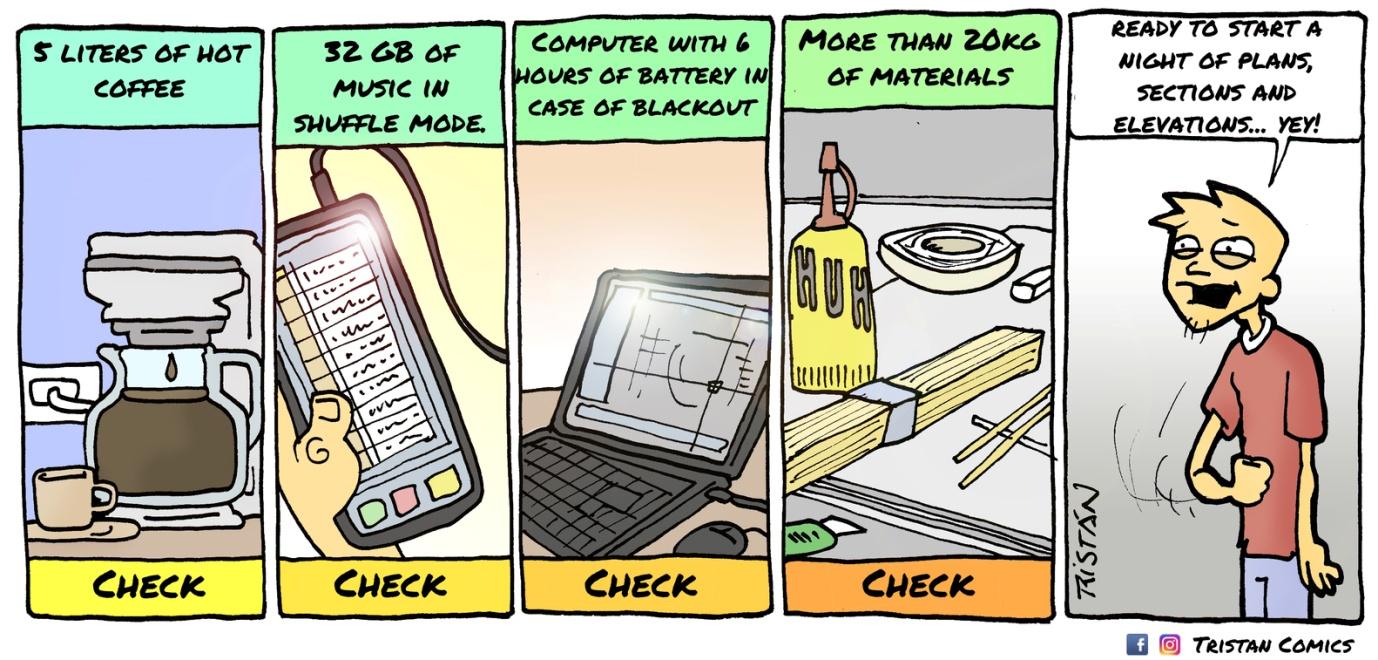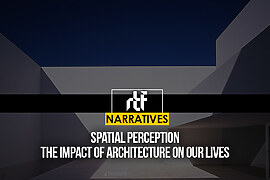Applying to a college of architecture, just like any other course in India, is very different when compared to the process opted by other countries. All your years of hard work, the multiple sports you played, the dances you danced, the songs you sang, and the NGOs you worked at to get that extra edge on your CV boils down to one thing, which is – nothing. At the end of the day, what matters is how well you have done in your NATA exam and how you hope that this year, for once, the entire process of admission does not change, again.

Similar to a lot of other students, my experience of getting into an architecture college was daunting and one that was filled with anticipation and anxiousness. There is one thing that you have got to know, other than the formal requirements such as your scores and your mark sheets, we as architects have set our own parameters too, without which life in architecture is supposedly going to be hard. You need to be good at sketching, you need to be exceptional at time management, coffee is your best friend and the only social life you will have will be the one in your designs, well the last one is one that I’ve added, aren’t we allowed to do that? Well, I must say, although these have some truth to them, they are far from being the necessary requirements you must have to be an architect.
Sparing you from stories about my sketching capabilities, time management is actually a very important skill an architect must possess in his list of goals. Time management, in all honesty, can curb probably 90% of all your problems in college, you won’t have to pull the infamous all-nighters, you won’t go through anxiety and have mental breakdowns, as you won’t be starting your concept sheet 1 hour before the jury and you will have actual blood running through your veins rather than coffee. Sounds tempting, doesn’t it? As architects, the concept of time management is very appealing, but like with most of our designs, it’s a far fetched fantasy that you have to work really hard to make a reality, and in all honesty, unlike our designs, it just might not be worth it.
Coming into college taught me a lot of things and believe me, not being great at time management has its benefits too, From learning how to stay up, not only during the night but during that one all-important hour sometime after midnight, where you just cannot stay up, and you need all your willpower to just get through that hurdle because you know that after that one hour your body will reset and like a recharged battery you sprint that last mile to your submission. The rush of adrenaline coursing through your body as you see yourself not meeting the deadline and the guilt of “I should have really finished this before” lingering in your mind very evidently. The truth is, the time you think you lost doing something that was anything but your submission, is one that you will only regret if you don’t end up finishing your submission at the end of the long haul, because nothing beats the 2 AM hot coffee that you sip on, as for five minutes you set aside your submissions and your worries and just let the cool breeze hit your face or the simple fact of knowing that you are not alone, and everyone except those two students are all wide awake, and for one moment all of you are in sync as you pray that you finish the assignment fast so that you can finally sleep.
Being bad at time management makes you value the small things in life; for one, you value the importance of sleep as you continue to neglect it. You understand the value of food as you unknowingly accomplish the most ambitious of diets. Being bad at time management helps you find out the true potential of how fast your brain works as you make those last-minute design changes that you couldn’t figure out for the past month and not the least, time management helps you understand, well, the value of time. By saying this, I do not intend to take away from the fact that time management might make your life much simpler. But more interesting? I do not know.
Architecture teaches you the importance of accepting failure, and well, if you don’t accept it at first, you sure will after you “Redo” the already redone sheet for the 3rd time. The concept of Redo was one that was introduced to us very early on into college, it’s not one that is forced upon you (Usually), it’s just something you’re pushed towards, and you would be lying if you said that the satisfaction after you see your grade get upgraded isn’t worth the pain. But if there is one thing I’ve learned is, no matter how tempting it might be, do not put this achievement in your presentation and for sure do not blurt out your excitement of upgrading from that E to that B, believe me, it might not be appreciated, but how could you not be thrilled? Only you know the pain in your legs as you stood drafting for hours, and the strain in your eyes as they turn red from making sure that each line you so meticulously draw is nothing short of perfect.
But architecture is not perfect, and it shouldn’t be either, because what would be unique in that? Architecture has taught me that failure should be embraced and learned from because there is no other way out, architecture college is an experience that helps us grow and learn, we aren’t architects yet, but we do strive to be. And somewhere along the lines of learning the difference between criticism and critique is where we become an architect.
No one is perfect when you enter college, and you will not be perfect when you leave either, but that does not prevent you from striving to be so. At the end of the 5 years, when you finally get that degree, you’re going to forget who you lost to or who you beat, and so the only scale to grade yourself on is one that you set for yourself. But, I’m still in college, so what do I know?













